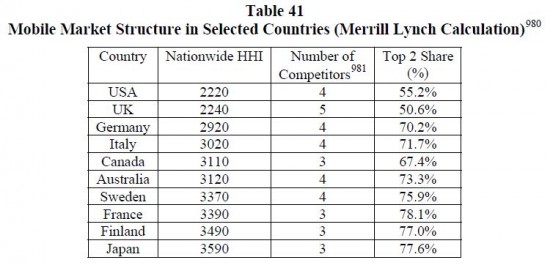A fun little tidbit from Huffington Post today. Cook County Commissioner Robert Steele penned an op-ed revealing that Free Press, strong advocates for Net Neutrality regulation, is pushing its agenda on minority communities in order to gin up support for further regulation of the Internet. I’m sure there is no connection with today’s FCC decision to move forward with its Notice of Inquiry on reclassifying the Internet to fits Chairman Genachowski’s controversial “third way.”
Take a minute to read the entire piece by Commissioner Steele, but one of the more salient points is this,
“My first thought when reading this [Free Press] email was, ‘what do these folks know about the needs and wants of communities of color, especially on an issue as impactful as Net Neutrality?'”
In assessing a couple of recent surveys on broadband adoption among minority communities (especially African-American and Hispanic), a couple of things become evident. First, the nation is facing an adoption problem, not an access problem. Those who are not connected to broadband are in this position largely due to their own choice. The FCC’s own report shows that, while African-Americans and Hispanics trail the average in broadband access, the gaps have narrowed just in the last year.
Not only that, but when it comes to the African-American community, it is the older folks who are not connecting (both minority and non-minorities). Those in the minority community under the age of 30 have basically the same broadband adoption rates as whites, which mean younger adults are recognizing the benefits of broadband. The same can be said about educated households, but then, educated households have a higher income level than non-educated and higher income is another factor towards higher adoption rates.
Another interesting factoid is that the minority groups are more likely to access the Internet via a handheld device. This means that mobile broadband growth may very well help pick up the slack in the “digital divide.” It seems more and more are relying on their smartphones to handle their Internet needs.
Really though, the bottom line is that people in low-income households, and those who tend to be older, are the ones that by-and-large do not want to connect to the Internet. There is nothing in Genachowski’s “third way” regulatory scheme, nor in anything that Free Press is pushing, that will help bridge this gap.
It’s a shame that Free Press is using racial division as a motivation to push unnecessary government regulation.




 The Technology Liberation Front is the tech policy blog dedicated to keeping politicians' hands off the 'net and everything else related to technology.
The Technology Liberation Front is the tech policy blog dedicated to keeping politicians' hands off the 'net and everything else related to technology.